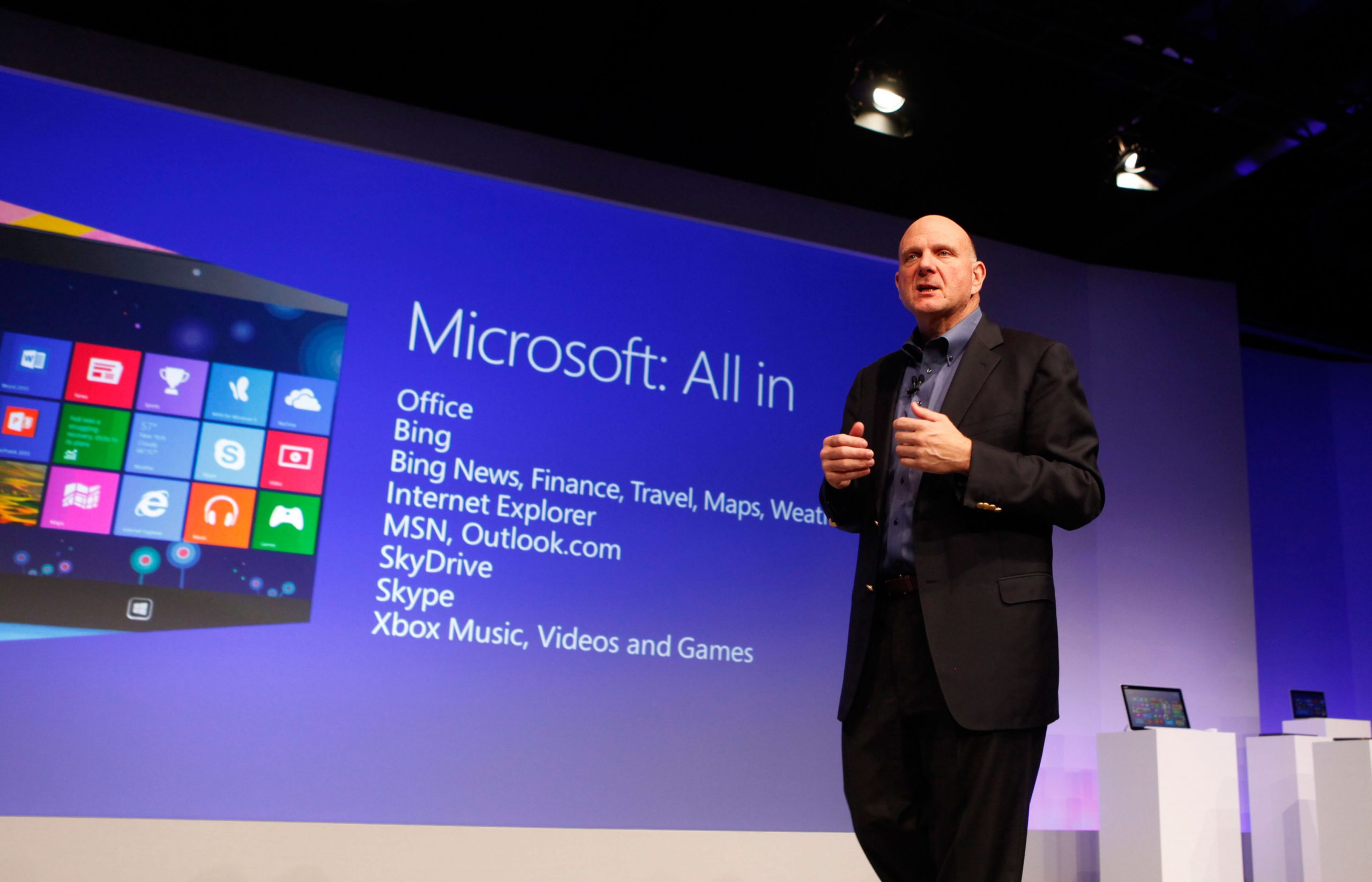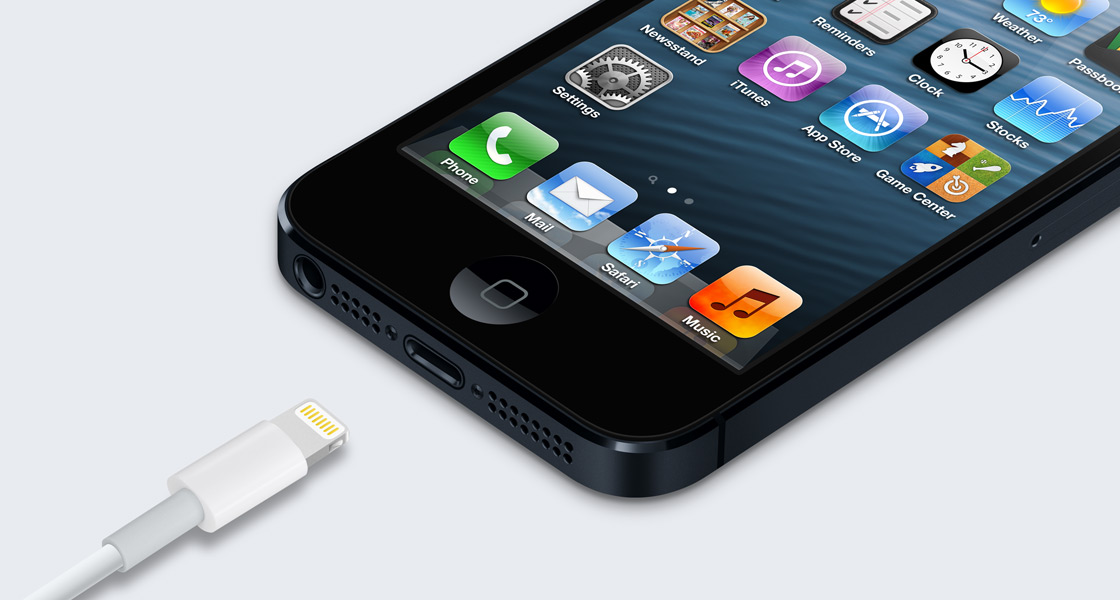
Windows is doomed
Napier & Son was the most successful British manufacturer of aircraft engines in the 1920s and 30s with their 12-cylinder Napier Lion powering 163 different types of aircraft between 1918 and 1935. Over that 17 year period the Lion grew from 450 to 1350 horsepower and was, for awhile, the most powerful aircraft, boat and car engine in the world, holding world speed records in all three venues at the same time. And then the Napier Lion was suddenly gone -- a lesson from which Microsoft CEO Steve Ballmer could benefit if he and his company don’t repeat it.
Napier perfected the Lion engine over those 17 years, improving it in every way until it was the best and most efficient engine of its class in the world. Then, seemingly overnight, the class changed as air forces and record setters alike suddenly needed more than the 1,350 horsepower a finely-tuned Lion could deliver. Napier’s Lion gave way to Rolls-Royce’s larger and innately more powerful Merlin and Griffon engines and Napier, for all intents and purposes, was gone.

On Steve Ballmer's big day, a look back 11 years
Today is a big day for Microsoft, with the Windows 8 and tablet launches, and potentially a very big day, too, for Microsoft CEO Steve Ballmer. It had better be, because some pundits think Win8 is Ballmer’s last hurrah, that he’ll be forced to step down if the new operating system isn’t a big success. That might be true, though I have a hard time imagining who would replace Ballmer at this point and how the company would change as a result. I’m not saying there isn’t room for improvement -- heck, I’m among those who have called for Ballmer to go -- I’m just not sure what would be any better. More on that in a future column.
Today, rather than look to the future or even to Windows 8, I’d like to write more about Ballmer, putting his reign at Microsoft into some context.
H-1B visa abuse limits wages and steals US jobs
The H-1B visa program was created in 1990 to allow companies to bring skilled technical workers into the USA. It’s a non-immigrant visa and so has nothing at all to do with staying in the country, becoming a citizen, or starting a business. Big tech employers are constantly lobbying for increases in H-1B quotas citing their inability to find qualified US job applicants. Microsoft cofounder Bill Gates and other leaders from the IT industry have testified about this before Congress. Both major political parties embrace the H-1B program with varying levels of enthusiasm.
But Bill Gates is wrong. What he said to Congress may have been right for Microsoft but was wrong for America and can only lead to lower wages, lower employment, and a lower standard of living. This is a bigger deal than people understand: it’s the rebirth of industrial labor relations circa 1920. Our ignorance about the H-1B visa program is being used to unfairly limit wages and steal -- yes, steal -- jobs from US citizens.

This is how IBM intimidates employees
I struck a chord with my recent column on H-1B visa abuse, so soon follow up with an enormous post that tries to explain the underlying issues. But before then here’s something I came across that doesn’t quite fit that theme but was too interesting to let pass unnoticed -- how companies like IBM intimidate employees and discourage them from speaking up.
A few years ago there was a class action lawsuit against IBM. Thirty-two thousand server administrators were being forced to work overtime without extra pay. IBM lost the suit and paid a $65 million settlement. That’s just over $2,000 per affected employee before the lawyers took their share. Then IBM gave all those workers a 15 percent pay cut with the justification they’d get it back in overtime pay. Next IBM restricted the workers to 40 hour weeks so there would be no overtime.

Cancelled event confirms new Apple tablet
As anyone with a heartbeat knows, Apple has a product event coming on Tuesday the 23rd in San Jose at which we’ll certainly see the iPad mini, perhaps a new MacBook Pro and maybe some new iMacs. But whatever is being introduced I think it’s fair to say that the event is still in flux, because Apple late Wednesday canceled another corporate event in Arizona scheduled for the same time, this one at The Phoenician resort.
Apple booked the entire hotel (600+ rooms) for Sunday through Wednesday. Their setup people were on site Tuesday. Late Wednesday, as setup was nearing completion, Apple told the resort that they “wanted all of their managers to be on site in their stores next Tuesday for the upcoming tablet release” -- that they were canceling the function.

IBM doesn't even pretend to comply with H-1B immigration law
I’ve been away. We had a death in the family (my brother-in-law) which turned me into a single parent for a few days -- a paralyzing experience for an old man with three small boys and two large dogs. You never know how much your spouse does until it all falls for awhile on your shoulders. I am both humbled and a bit more wrinkled for the experience.
While I was being a domestic god a reader passed to me this blog post by John Miano, a former software developer, founder of The Programmers Guild, now turned lawyer who works on immigrant worker issues as a fellow at the Center for Immigration Studies (CIS) a supposedly nonpartisan think tank in Washington, DC. I don’t know Miano and frankly I hadn’t known about the CIS, but he writes boldly about H-1B visa abuses and I found that very interesting.

Bedouin justice is the answer for efficient financial regulation -- one judge, one sword
First in a series. Thirty years ago, when I worked for a time in Saudi Arabia, I saw a public execution. I didn’t attend an execution, I didn’t witness an execution, I just happened to be there. There was in the center of this town a square and in the square were gathered hundreds of people. I worked in a building next to the square and looked out the window to see what caused all the noise. At that moment a prisoner was brought forward, his arms bound behind him. He was dragged up the steps to a platform and there fell to his knees.
Another man, whom I quickly came to understand was the executioner, climbed to the platform with the prisoner and poked him in the side with a long curved sword. The prisoner involuntarily jerked up just as the sword slashed down and just like that there was a head rolling off the platform, the body falling dead like a sack of flour. The crowd roared. Beginning to end it took less than a minute.

Steve Jobs wouldn't back my private mission to the moon
Today marks a year since the death of Steve Jobs -- a year that has changed my life in many ways with at least two of those ways yet to be announced. The anniversary seems to be an excuse for anyone with a byline who knew or even bumped into Jobs to throw out a reminiscence or two, and I’m not immune to that disease. So here’s the story of when I tried to get Jobs and Apple to back my Moon Shot.
I’ve been trying since 2007 to mount a private unmanned mission to the Moon, though five years in it feels sometimes like I could have walked there by now. It turns out that the greatest challenge to reaching the moon isn’t technical but financial. Even though my Moon project is by far the cheapest one around, the trick is to raise money at a faster rate than the budget expansion that inevitably happens as you face realities along the way.

It's time to stop bufferbloat
This is my promised update on bufferbloat, the problem I write about occasionally involving networks and applications that try to improve the flow of streaming data, especially video data, over the Internet but actually do the opposite, defeating TCP/IP’s own flow control code that would do the job much better if only it were allowed to. I first mentioned bufferbloat in January 2011 and it is still with us but the prognosis is improving, though it will probably take years to be fully resolved.
If you read my last column on LagBuster, you know it’s a hardware-based workaround for some aspects of bufferbloat aimed especially at gamers. LagBuster is a coping strategy for one type of bufferbloat that afflicts a population of people who aren’t willing to wait for a systemic cure. LagBuster works for gamers and might be a workaround for other kinds of low-latency data, but that’s still to be determined.

It’s not you, soldier, it’s the lag
If you are a serious gamer you need LagBuster.
Lag is mainly upstream (you to the game server), while bufferbloat is mainly downstream (video server to you). Bufferbloat is caused by large memory buffers in devices like routers and in applications like media players messing with the native flow control in TCP/IP. We add buffers thinking it helps but instead it hurts. Something similar happens with lag but it tends to happen at the point where your 100 or 1000 megabit-per-second local area network meets your 3-25 megabit-per-second DSL or cable Internet connection. Lag is caused by congestion at that intersection. You can tell you have lag when you can’t seem to be able to aim or shoot fast enough in your shooter game. It’s not you, soldier, it’s the lag.

It's time to worry about the startup economy
As I’ve written many times before, small companies and especially new companies are what create nearly all of the net new jobs in America, yet a new study released last week by the Hudson Institute suggests the rate of job formation by new firms is down dramatically in recent years, from an average of 11 new startup jobs per 1,000 workers at a peak in 2006 down to 7.8 new startup jobs per 1,000 workers in 2011 -- a 29 percent decline. So is the startup economy losing its oomph and should we be worried? No the startup economy isn’t losing its oomph but yes, it’s time to worry.
The Hudson Institute study was written by the think tank’s chief economist Tim Kane. He notes with concern this downward trend in startup job formation but his study doesn’t attempt to explain it, leaving that for the future. He’s not above, however, mentioning the likely negative impact of increased regulation, especially from the impending Affordable Care Act, AKA Obamacare.

Why won't Google pull that offensive YouTube video?
Let’s everybody beat up on YouTube for not pulling that offensive anti-Muslim video that is infuriating people around the world. No, wait. As disturbing as this story is let’s instead take a moment to try and figure what’s really happening and why YouTube and its parent Google are behaving this way.
It’s easy to blame Google’s algorithmic obsession for this mess, but I don’t think that’s at work here at all. Yes, Google is very good (which means very bad in this case) at blaming one algorithm or another for pissing-off users. Google customer support is, in a word, terrible for this very reason, and it often seems like they don’t even care. But this case is different, because it has less to do with algorithms than it has to do with intellectual property laws.

Is an older model of iPhone better than a modern Android?
I’ve been told the new faster-bigger-but-lighter-and-thinner iPhone 5 has a Thunderbolt interface. The press has correctly picked up on the fact the cables and connectors are different. They haven’t, however, figured out Thunderbolt is not USB. I guess we can expect the next round of iPads to use Thunderbolt too.
If it is Thunderbolt (I haven’t been able to confirm) you have to wonder why? In one sense this may just be Apple wagging the market because it can, but what if they really need a 10 gigabit-per-second interface for something? And what could that something be?

Kindle Fire HD burns Microsoft more than Apple
Following Amazon's Kindle Fire HD announcement, a reader reminded me of a prediction I made at the start of the year: "If Apple gives up its position of industry leadership in 2012 the only company capable of assuming that role is Amazon.com". I stand by those words -- Amazon is really bringing the fight to Apple -- but the most important part is "if Apple gives up its position", which it clearly hasn’t, at least not yet. The real loser here, in fact, is not Apple but Microsoft.
I could be wrong about this but I don’t recall any pundits (me included) predicting that Amazon would introduce a larger format tablet, yet that’s exactly what they did. The larger Kindle Fire HD with its built-in content and app ecosystem (and that killer 4G data package!) is a viable iPad competitor at a terrific price and puts real pressure on the Cupertino, Calif.-based company. Will Apple match the price? I don’t think so. That’s not the game they want to play. But the game is on, nevertheless, and users can only benefit from competition.

We need an IPO renaissance
Third in a series. As many readers have pointed out, the IPO drought of the last decade has many causes beyond just decimalization of stock trading. Sarbanes-Oxley has made it significantly more expensive to be a public company than it used to be. Consolidation in the banking and brokerage industries have resulted in fewer specialists and hardly any true investment bankers surviving. The lure of derivatives trading and other rocket science activities on Wall Street have made IPO underwriting look like a staid and prosaic profession, too. Fortunately, people in positions of influence are finally starting to realize that there is no economic future for this country without new public companies.
One requirement of the JOBS Act, passed last April, was that the SEC look at trading decimalization, and especially tick sizes, to see if there has been an effect on small-cap company liquidity. If the SEC decides there is such a negative effect there’s the possibility that they introduce a new minimum tick for smaller companies of perhaps a nickel (up from a penny) to as much as a dime. I believe this would help the IPO industry, but many people disagree.

